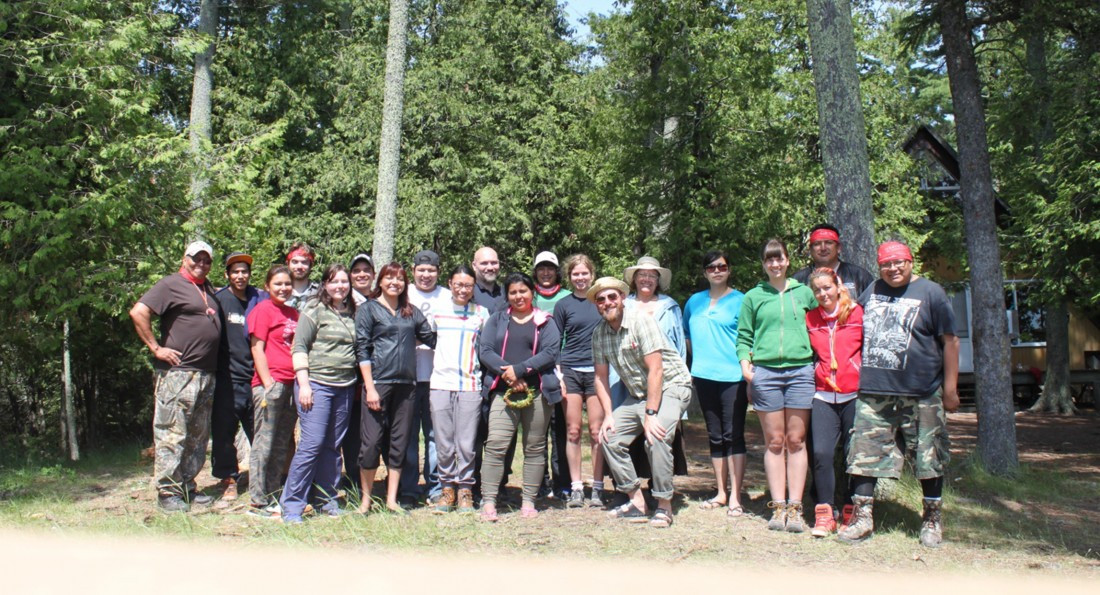Field Course in Reconciliation
Students study with elders in the community of Shoal Lake 40
Last month, University of Winnipeg (U of W) students took their studies to Shoal Lake 40 First Nation. Students from various disciplines participated in Shoal Lake to Winnipeg: Practicing Land- Based Reconciliations, a summer class where they learned survival skills from Indigenous knowledge keepers.
The idea of a land-based reconciliation field course came up while Dr. Jobb Arnold, an assistant professor at the U of W, was in conversation with the community of Shoal Lake 40 First Nation while helping build a road to transport clean water.
“From the outset, the field school was developed in partnership with folks from Shoal Lake,” Arnold says.
“Menno Simons College partnered with the Museum of Canadian Human Rights Violations, a group of people from Shoal Lake who have been raising awareness about the day-to-day realities experienced by folks on the reserve.”
The summer course, which was partially funded and organized by the Manitoba Pioneer Camp and the U of W Experiential Learning Network, included an in-class portion, as well as a 10-day field course. In the field, students learned canoeing skills with teachings and stories from Indigenous elders and knowledge keepers and ate traditional foods.
For Jason Pinkney, a participating student, the field experiences outside of the classroom brought a new vitality to the in-class portion of the course.
“University courses are very good at conveying the rational theoretical arguments and informing people about issues,” Pinkney says. “All too often that information remains in silos and doesn’t move people to action.”
Arnold explains this direct and unconventional learning opportunity helped make the course unique.
“I was really impressed by the willingness of all the participants to engage with the course in ways that challenged them personally and allowed them to have a meaningful, in some cases transformational, experience,” he says.
“Long-entrenched colonial patterns don’t just go away, and there’s no checklist for whether you’re doing reconciliation right. It’s a matter of your frame of reference and relative privilege. I hope we continue to hold ourselves and each other accountable to doing it.”
Andrew Vineberg, the community liaison co-director on the University of Winnipeg Students’ Association Board, stresses the importance of interacting with the community, the land and the lake from where Winnipeg draws resources.
“I learned that as a society we are going to need to do a lot more investigation, a lot more questioning of assumptions and a lot more listening to Indigenous communities directly before we can attempt to say that reconciliation or decolonization can be realistically attempted,” he says.
“After seeing Shoal Lake with your own eyes, you can’t run a tap in this city without thinking about where it came from. People and things (are) harmed and exploited to make it possible. We have a responsibility … to question how we can end this harm and make our world run differently.”
Published in Volume 71, Number 1 of The Uniter (September 8, 2016)







